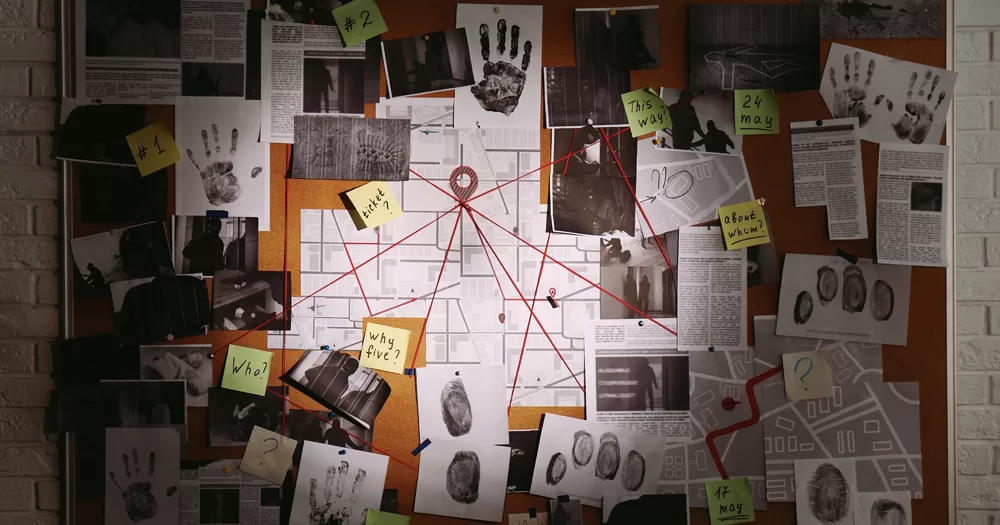As Oppenheimer, the biopic directed by Christopher Nolan that recounts the story of the first atomic bomb, continues to garner success after success with its recent Oscar nominations, there are other stories related to the project that remain hidden and forgotten. According to FBI records recently declassified, at least eight lesbian women worked on developing the first atomic bomb and were later investigated by the federal government as part of the homophobic hysteria in the US that became known as the Lavender Scare.
Many will be familiar with the Manhattan Project, a research programme launched during World War II to produce the first nuclear weapons. The science hubs where the project was undertaken, Hanford and Los Alamos, were highly guarded places where paranoia ran high. Amid concerns of espionage and sabotage, the project operated under a mandate of “absolute secrecy”.
FBI agents were constantly conducting investigations on anyone who participated in the project, trailing staff outside working hours and digging deeply into their pasts for any indication that they might pose a security risk. Robert Oppenheimer himself, the director of the Los Alamos Laboratory where the first atomic bomb was created, was under investigation and eventually lost his security clearance in 1954 because of a previous association with the Communist Party.
However, alleged associations with the communists or the Soviet Union weren’t the only proof that the FBI looked for in their investigations of government officials. The so-called “Lavender Scare”, meaning the persecution and removal of gay men and lesbians from the government’s workforce, officially started in 1953 when President Dwight D. Eisenhower issued Executive Order 10450.
The executive order barred gay and lesbian Americans from employment in the federal government. In the eyes of Eisenhower’s cabinet, gay and lesbian people posed a threat to national security. They believed that these groups were more susceptible to blackmail and generally had weak moral characters. While the executive order was in force, the FBI conducted investigations on all federal government employees who were believed to be queer and many lost their security clearances and their jobs.
According to the Seattle Times, among those who were investigated due to the Lavender Scare were eight lesbian scientists who worked on the creation of the first atomic bomb, and were later dubbed the “Manhattan Eight”. After conducting an extensive review of declassified FBI records and Atomic Energy Commission memos, the Seattle Times uncovered that five of these women worked at Los Alamos in New Mexico, while the other three were based in Hanford, in Washington State.
The FBI started to systematically identify LGBTQ+ people in the nuclear weapon projects even before Eisenhower’s order was issued and it didn’t yet constitute grounds for removal. The records reviewed by the Seattle Times showed how the Manhattan Eight attempted to live authentic lives while trying to escape the FBI and their investigation which lasted over a decade.
According to the declassified documents, the eight women were “considered by almost everyone to be Lesbians”. Using derogatory language, which was common for the era, the files also described them as “coarse and masculine looking and that they wore men’s clothing most of the time. They were seldom seen out with men and associated only with girls in their own small group.”
As the documents didn’t state the women’s names but only referred to them by letters, the Seattle Times assigned them names based on those initials. Three of the Manhattan Eight, identified as Annie, Betty, and Fran, apparently obtained jobs at Los Alamos even though the FBI had already uncovered “information indicating possible homosexual tendencies”.
Annie started working at Los Alamos in 1944, and a couple of years later, she transferred to Okinawa, where she joined a woman who was believed to be her lover. Later in 1949, she also worked at Hanford, where she was fired in 1953 after being denied a security clearance. During all these years, the FBI followed her everywhere she went. “Based on the extent of the FBI’s focus on her, Annie may have been America’s most wanted lesbian,” the Times wrote.
Another of the Manhattan Eight, Betty, left her job and later lost her security clearance because she wasn’t “considered for reinstatement based on the FBI’s findings”, according to the Seattle Times. Helen, who was a nurse at Los Alamos Medical Center and voluntarily left her job, lived with another woman and was “sour on men” after unhappy marriages.
Claire, who faced “a serious question of eligibility for continued security clearance”, was told that she had to undergo another investigation if she wished to continue working at Hanford. The records did not show what she chose to do.
Speaking to the paper, assistant director of the Hanford History Project Robert Franklin commented on how the lesbian scientists who worked on the first atomic bomb were lumped with groups that wished the country harm by saying that they “constituted security risks”.
“They’re not enemies, but the fact is they could be compromised just because of who they are. It’s deeply unsettling and really should be a cautionary tale,” he added. “They wouldn’t have been a risk if we had been able to accept people for who they are.”
© 2024 GCN (Gay Community News). All rights reserved.
Support GCN
GCN is a free, vital resource for Ireland’s LGBTQ+ community since 1988.
GCN is a trading name of National LGBT Federation CLG, a registered charity - Charity Number: 20034580.
GCN relies on the generous support of the community and allies to sustain the crucial work that we do. Producing GCN is costly, and, in an industry which has been hugely impacted by rising costs, we need your support to help sustain and grow this vital resource.
Supporting GCN for as little as €1.99 per month will help us continue our work as Ireland’s free, independent LGBTQ+ media.
